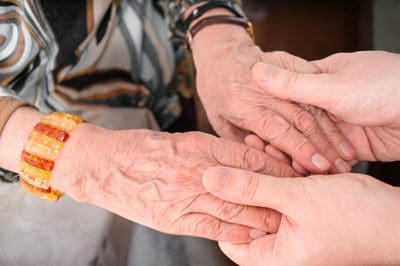 Today’s aging baby boomers have altered the makeup of the general population compared to just 10 years ago.
Today’s aging baby boomers have altered the makeup of the general population compared to just 10 years ago.
In fact, the U.S. Census Bureau projects that by 2050, adults over the age of 65 will make up a quarter of the population. This change, coupled with the older population’s different cultural norms and attitudes about drug use, has led to greater substance abuse problems among senior citizens. Because this type of abuse often goes unnoticed, it is often untreated. However, specialized addiction programs for seniors are becoming more commonplace with treatments that are just as effective as those that are set up for younger people.
Commonly called an invisible epidemic, addiction and drug use among seniors are of great concern. While technically it is no different from a younger person in the same situation, elderly adults have different views about it. They may not have or want the support from their friends and family members for a variety of reasons including embarrassment, lack of funds or insurance, or just plain refusal to seek help. They also may not want to return to the lifestyle that drove them to use in the first place.
The reality is that substance abuse takes a greater toll on senior citizens than on younger adults for many reasons. Besides the psychological issues that are specific to seniors, growing older brings some biomedical changes that affect how drugs alter their body chemistry.
It may be difficult for older adults to hide their substance abuse problems as they reach retirement age. In seeking treatment, they should look for drug rehabilitation or treatment centers that cater to the older population.
Treating Substance Abuse in Senior Citizens
Drug addiction and substance abuse in older adults is a serious medical condition, but it is also manageable. The right type of treatment can help reduce the effects of drugs on both the brain and the body. Treatment also helps seniors improve their health and regain some of the everyday functions they might have lost. Most importantly, the right treatment can also help them regain control of their lives.
Since the behavior of senior citizens with substance abuse issues differs from younger adults, it only makes sense to tailor the treatment to them. For instance, seniors are not as likely as younger people to raise their voices or curse at each other, and prefer not to be around others who exhibit that type of behavior. At a facility designed for the elderly, professionals are not only trained to be sensitive to seniors’ needs but to help clients conquer psychological and physical aspects unique to their addiction.
Types of Treatment Therapies
There are several ways to treat substance abuse, including medication and behavior treatments or a mix of both. Most programs start with medically managed withdrawal and detoxification. Detox clears the body of drugs and helps manage the possible physiological effects of suddenly stopping an addictive drug.
However, detox does not address the social and psychological issues associated with substance abuse and usually does not produce long-lasting behavioral changes needed for complete recovery. Because of its side effects, detox is often accompanied by a prescription medicine administered by a healthcare professional. Remember, only a medical doctor or substance abuse professional can determine the best type of treatment.
Senior citizens who seek treatment should look for an age-appropriate environment that includes the basic tools of rehabilitation:
- Group and individual counseling sessions overseen by substance abuse recovery specialists
- Medically-supervised benevolent detox
- Drug treatments that are holistic and treat the entire individual, not just the addiction
- Extensive outpatient treatment regime to make sure the clients remain clean
- Referrals to off-site support groups and other types of outpatient treatments to prevent relapse
What to Do If You Suspect an Elderly Loved One Has an Alcohol or Drug Problem
Getting older is imminent, but substance abuse for any reason doesn’t need to be a part of it. Early detection, diagnosis, and treatment can negate the consequences brought on from chronic drug abuse. Although communication is fundamental to prevention, you also need to be aware of your loved one’s personality and everyday demeanor if you suspect a drug problem. Some common signs include:
- Looking or acting impaired or disoriented
- Having an unsteady gait or poor balance
- Asking for prescription refills even when they aren’t needed
- Reporting lost or stolen medication frequently
- Looking disheveled and having poor hygiene
- Having frequent mood changes
- Increasingly wanting to be isolated and away from social situations
- Switching doctors or having more than one physician from whom to get prescriptions
- Having noticeable appetite changes
There are also ways you can prevent your elderly loved one from being tempted to abuse prescription medications already in the house. They include:
- Having a physician go over all the prescriptions and making sure the doses are accurate and void of any drug interactions
- Making sure that all medications are taken properly
- Using the prescriptions for their intended uses only
- Understanding each medication’s side effects
- Not using someone else’s prescription medications
- Not stopping your prescriptions without your doctor’s consent


